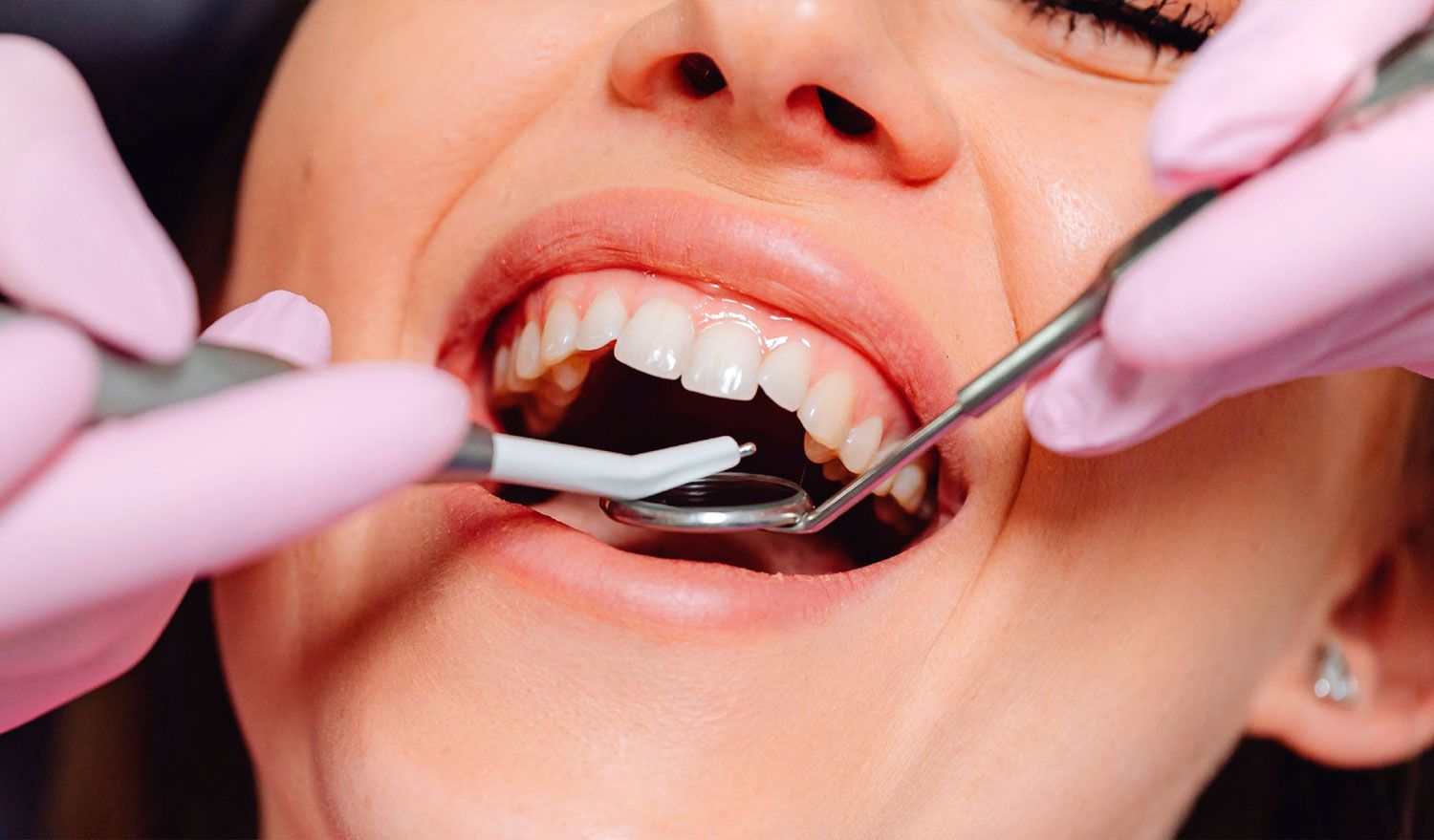Sealing
Permanent molars sometimes have deep grooves and pits in the chewing surfaces that are difficult to clean with a toothbrush. To prevent cavities, these grooves and pits can be filled with a fissure sealant. This is called sealing.
When is sealing necessary?
If the grooves and pits (also called fissures) are very deep, it is difficult or sometimes even impossible to brush properly in them. A sealant (fissure sealant) fills the groove. This prevents bacteria from settling, reducing the risk of cavities. The risk of cavities is greatest when the molars have just erupted. Brushing can be painful then, and the enamel still needs to harden.
Sealing is usually performed shortly after the permanent molars erupt. This is usually around the age of six. However, sealing can always be effectively applied to children.
In some cases, adult teeth are also sealed, but this is the exception rather than the rule. Your dentist can advise you on the best approach and whether sealing is beneficial.
Treatment
First, the molars are thoroughly cleaned with a brush and polishing paste. The molars are then roughened with an acidic agent (etching agent). This allows the fissure sealant to adhere well to the tooth. After it has taken effect, the etching is rinsed away and the tooth is air-dried. The resin sealant is then applied. The sealant hardens naturally or is cured with a blue light. The treatment is usually painless and takes a few minutes per tooth.
Costs
Treatment codes V30 and V35 are used for sealing.
For children, sealing permanent teeth is covered by basic insurance. If the dentist determines that baby teeth require sealants, permission must be obtained from the health insurer. The dentist will then request authorization for the treatment.
For adults, (part of) the treatment costs may be reimbursed through supplementary basic insurance.
Risks
A sealant does not guarantee against decay. Brushing thoroughly twice a day with fluoride toothpaste is still necessary, even with sealed molars.
The sealant may initially have a slightly unpleasant taste and feel a bit strange when biting. This will pass quickly. During your periodic checkup, your dentist will check whether the sealants are still intact and properly attached. Sometimes it's necessary to replace a sealant.
Alternatives
Sealing your teeth is a preventative treatment to prevent cavities. You can always forgo a proposed preventative treatment. However, if you do, ask your dentist about the possible consequences.
Source: KNMT
Opening hours
-
Mon – Fri.:
08:00 - 12:00 uur
13:00 - 17:00 uur


